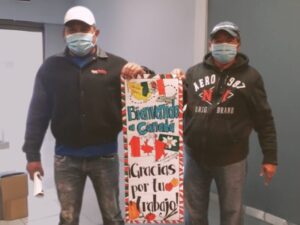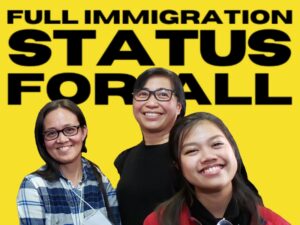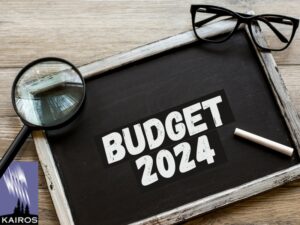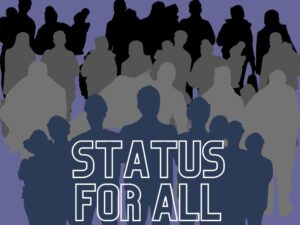Faith, Economy, Migration: Exploring the Connections
Alfredo Barahona is representing KAIROS at the Ecumenical Dialogue of the Americas on Faith, Economy and Migrations in Quito, Ecuador from November 27 to December 1. Organized and hosted by the Latin American Council of Churches (CLAI), one of KAIROS’ many partners in Latin America, the meeting will bring together church partners from North and South America to explore the intersections between faith, migration and economic models as they relate to ecological degradation, poverty, unemployment and forced migration. On the eve of the meetings, Alfredo reflects on how the relationship between faith, economy and migration, in particular forced migration, has been a challenge for the churches and the ecumenical movement.
In some parts of the globe, the economies of southern countries depend largely on the pay cheques of family members who are forced to migrate to the north to find work, often risking, or in far too many cases losing, their lives. Churches in the “sending and receiving” countries must ask themselves how they are complicit. How can the churches help protect God’s creation from an economic system based on maximizing profit and the exploitation of natural resources and human beings? How can we help guarantee people’s right to remain in their lands and territories? But if people are forced to migrate, how do we protect their rights once they arrive in the host countries?
The Ecumenical Dialogue is part of a series of events that connect churches at the global level. Attending the meeting will be members of the Global Ecumenical Network on Migration (GEM) of the World Council of Churches (WCC), who are fresh from meetings of the UN- High Level Dialogue on Migration and Development in New York, and the 10th General Assembly of the World Council of Churches in Busan, South Korea. The dialogue seeks to bring more closely together the efforts of churches in North and South America, as well as to provide continuity for the work of the global church for justice for migrants.
One of the objectives of the dialogue is to produce a document that will provide the basis for the creation of Christian education, social ministries and public policy materials that respect human life, nature and economic justice.
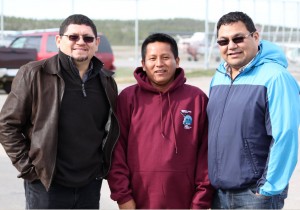
KAIROS’ Alfredo Barahona, leader of the Kichwa People of Rukullakata René Chimbo, and George Poitras of the Athabasca Chipewyan First Nation
On a personal level, one of the highlights for me is the opportunity to meet one of the speakers, Magister Julián Guamán Gualli, an Indigenous Puruha Kichwa from Chimborazo and a member of Ecuador`s legislative assembly. Mr. Gualli’s participation represents an important intersection with KAIROS’ Indigenous rights work, and I look forward to learning more about Julián’s life and work.
I will also meet with Acción Ecológica, a KAIROS partner in the region that is currently resisting oil operations in the Yasuní, a national park in Ecuador that was declared an ecologically sensitive area. Acción Ecológica is urging the government of Ecuador “to keep the oil in the ground” and to look for alternative energy and revenue generating resources.
The Yasuní National Park web site describes the park, located in the Ecuadorian Amazon region in the provinces of Orellana and Pastaza, as “the most biologically diverse region in the world.”
On 20 November 1979, Yasuní was declared a National Park, in recognition of the fact that it contains great natural wealth that must be preserved. In 1989, the park was declared a World Biosphere Reserve, part of UNESCO’s Man and the Biosphere (MAB) Programme. This designation means the park’s management must comply with the Seville Strategy for Biosphere Reserves, adopted at the International Conference on Biosphere Reserves in Seville, Spain in March 1995. The strategy stipulates that the only activities that can be undertaken in a biosphere reserve are “cooperative activities compatible with sound ecological practices, including environmental education, recreation, ecotourism, and applied and basic research.” In 1999, part of the park was declared an ‘untouchable zone’. These are protected areas of exceptional cultural and biological importance in which no form of extractive activity can take place due to their environmental value, not only for the region, but also for the country and the world.
All these categories of protection were granted to the area with the goal of protecting and preserving countless endangered species of animals and plants. The protected area covers a total of 982,000 hectares. [1]
After the meetings in Quito, the plan is to travel to Rukullakta. This community, located 5 hours outside of Quito in the Amazonia region of Ecuador, is home to René Chimbo, a young Indigenous leader of the Kichwa People of Rukullakata. René was in Canada in May 2012 and visited Fort Chipewyan on the shore of Lake Athabasca in Northern Alberta. Invited by the Fort Chipewyan First Nation Chief and Council, René toured the tar sands to see with his own eyes the extent of the oil industry and its impact on the Indigenous people of the region. With an expression of deep sadness and fear René said “It’s like I am seeing the future” in reference to the oil development proposals in his region. But the people of Fort Chip encouraged René to continue defending his nation’s territory as there is still “time to stop development projects.”
René will host me in Rukullakta and will update me on the situation in his community’s territory. What will I find? What will KAIROS partners say? What will I learn to help Canadians and our political representatives understand why those whose rights have been violated by Canadian mining activity overseas must have access to justice in Canada?
Stay tuned as I write more from the Amazonian region of Ecuador.









